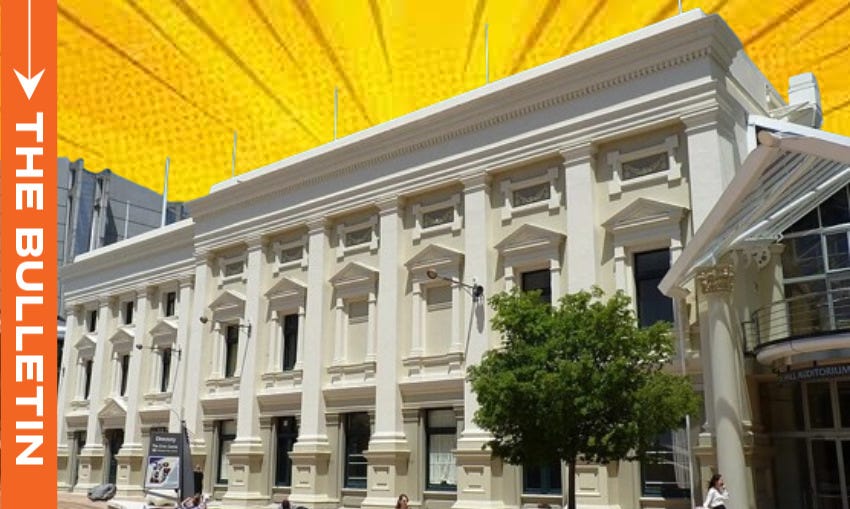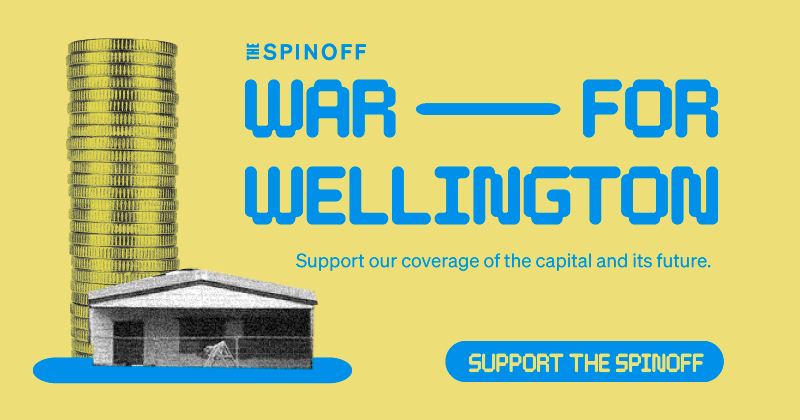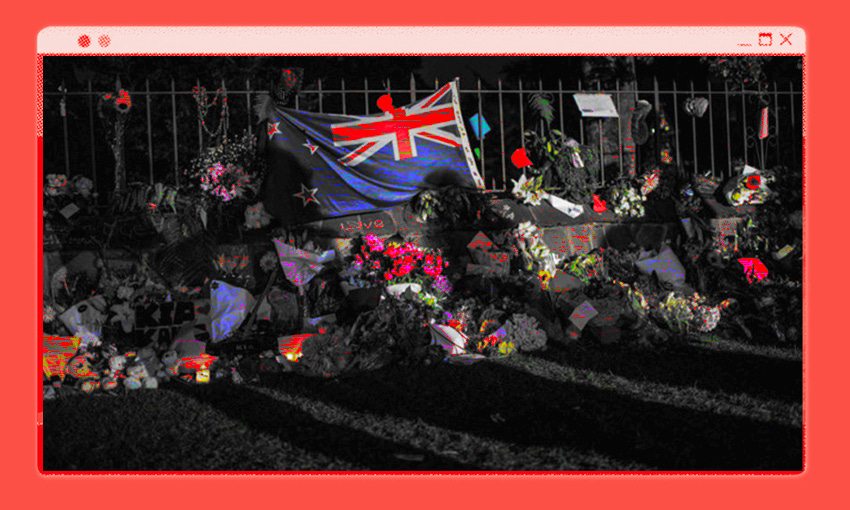Why council rates are going up and up
After decades of under-investment, councils are facing up to their infrastructure deficits – and being pummelled by high inflation and interest rates in the process.
Mōrena, and welcome to The Bulletin for Friday, March 15, written by Catherine McGregor.
In today’s edition: The Muslim community marks the five-year anniversary of the Christchurch mosque attacks; Labour MPs gather to chart a path forward in opposition; Green Party suspends MP Darleen Tana over claims of migrant exploitation at a business owned by her husband. But first, as councils gear up to deliver bad news to ratepayers up and down the country, Yimbys in Wellington are celebrating a historic win.
Where rates are going up the most
With long-term-plan season getting underway at councils across the country, it won’t be long before councillors are voting on rates increases for the coming rating year. Based on proposed figures, the average homeowner will be paying 15% more ; the unluckiest will be shelling out a lot more. The biggest increase is in Westland, where Buller District Council ratepayers are set to pay a whopping 31.8% more in 2024/25. Among the others hardest hit are those paying rates in Napier (a 23.7% increase), Hamilton (19.9%) and in the Greater Wellington Region (GWRC) at 19.8%. Not all increases are so large, but almost everyone will be paying a lot more than in recent years. The latest increases represent a huge change from historic averages: according to a new report commissioned by Local Government NZ, the average rise in the 20 years to 2022 was just 5.7% per year.
Why they’re going up so much, so fast
That LGNZ report, prepared by Infometrics economist Brad Olsen, isn’t just focused on individual councils’ rates increases. The report also looks at the cost pressures that are forcing councils to raise rates so much, and finds that, like all of us, councils are being hit by a double whammy of high inflation – the cost of building a bridge is now 38% more expensive than three years ago, for example – and higher interest rates. Councils are also facing new, more expensive cost pressures including the demand for infrastructure in high-growth areas, coping with growth in tourism, and adapting to climate change and increasing natural hazards.
Councils at financial breaking point
While rates increases can meet some of those cost pressures, ratepayers can only be asked to pay so much. According to the Infrastructure Commission, local government is collectively facing a $52b infrastructure deficit. “It’s simply not able to pay for that,” writes Newsroom’s Jonathan Milne. Already some councils are close to their financial breaking point. A Newsroom survey found that 11 councils have net debt-to-revenue ratios of more than 200%, with Hamilton City Council the worst at 281%, just four points below the limit on council debt covenants. Those councils at the high end of the scale would be teetering on the edge of bankruptcy if they operated as businesses, Milne writes. As GWRC’s Daran Ponter tells him, “You would only need to have a council that’s close to its debt ceiling and then a Cyclone Gabrielle or a Cyclone Bola-type incident and bingo, you probably have the recipe for insolvency.”
‘An enormous, unprecedented victory’
Amid all the gloomy news for both councils and ratepayers, a ray of sunshine just emerged from the Wellington City Council chambers. Councillors yesterday overwhelmingly rejected the widely criticised, Nimby-friendly recommendations from the independent hearings panel (IHP), instead approving a raft of pro-density amendments to the city’s District Plan. Twelve hours later, Spinoff Wellington editor Joel MacManus can still hardly believe what happened. “The new Wellington District Plan is the biggest, fattest W in the history of the pro-housing movement in this country,” he writes this morning. “For the Yimbys, the New City, the progressives, the urbanists, a City for People, for anyone who wants to own a townhouse or apartment in Wellington one day: this is an enormous, unprecedented victory.”
Read Joel’s live blog of yesterday’s historic council meeting here.
We are asking for your help to continue our coverage of Wellington
The War for Wellington has been a six-week editorial project for The Spinoff focused on the city’s District Plan and the chance to rewrite the rulebook on housing. Every single one of the 33 stories to date from myself and our contributors has been free for all to read. Many have involved hours pouring over hundreds of pages of dense documentation. We are incredibly grateful to Spinoff Members for enabling this work; thank you. This week, we end this project but remain dedicated to continuing our coverage of Wellington. To do so, we are asking for reader help. Please, if you are able to support The Spinoff, donate or become a member today.
Joel MacManus
Wellington editor
The Christchurch mosque attacks, five years on
It’s five years since the Christchurch mosque attacks, an occasion that will be marked by the largest gathering by the city’s Muslim community’s since at least 2019. “As this year’s anniversary also falls within the first week of Ramadan, the community will be breaking their fast together at Masjid An-Nur in Christchurch, also in honour of the victims, their families and the survivors,” reports Stuff’s Mildred Armah. Today being a Friday, the same day on which the attacks took place, adds extra resonance to the anniversary. In The Press (paywalled), Charlie Mitchell looks at the challenges still facing those affected, including one particularly stark example: some widows will have their widow’s benefit cut off today, since under ACC they automatically expire five years after a spouse’s death. The tragedy was also a “complex social catastrophe”, writes Mitchell, particularly due to the number of older men, leaders in their community, who were killed. “A lot of the youngsters now haven’t got that leadership,” says one mosque attendee. “There’s no teaching or explaining because we’ve lost the elderly.”
Labour MPs gather to chart a path forward in opposition
The Labour caucus is spending a long weekend in Martinborough, where the subject of discussion will be what went wrong at the election and how the party can turn things around for 2026. In The Post (paywalled), Luke Malpass contrasts yesterday’s gloomy Wairarapa weather with the last time Labour’s caucus retreat was held there, in January 2020. Then, coronavirus – and later a blowout election win for Jacinda Ardern – was on the horizon. Still, “the weather was great, there was back-yard cricket and a bouncy castle for MPs’ children.” The mood is a lot less celebratory these days, but “Labour strategists do see a path forward, Malpass writes, “and one that revolves around the continued lukewarm public response to the prime minister – at least as is being reflected in the polls.” One of the big topics of debate for MPs is likely to be whether a capital gains or wealth tax should finally become party policy, writes RNZ’s Russell Palmer.
Navigating the rising tide of electricity demand
Transpower is taking a new approach to handling the massive increase in demand for electricity. Instead of building bigger power pylons (and a lot more of them), they want to reduce demand for electricity in the first place. In this week’s episode of When the Facts Change, Bernard Hickey is joined by Transpower’s John Clarke to discuss the state-owned power transmission company's recent RFP for non-transmission solutions; novel ideas such as buying demand reduction through virtual grids and batteries. And ground zero for their electrical innovations? Te Waipounamu, the South Island.
Click and Collect
The Green Party has suspended MP Darleen Tana after a Stuff investigation into allegations of migrant exploitation at a business owned by her husband.
Government confirms it will reduce the brightline test for property sales from 10 years to two from July 1 this year.
Significant Natural Areas (SNA) compliance for councils has been suspended for the three years, the government announces. The rules had been criticised by some councils as unclear and overly onerous. The Greens say the suspension is short-sighted and will end up harming ecosystems.
A school student spat on the ground in front of Act leader David Seymour during a tense school visit in Palmerston North.
Feeling clever? Click here to play 1Q, Aotearoa’s newest, shortest daily quiz.
Five years on from the Christchurch mosque attacks, Anjum Rahman asks what has changed in New Zealand's counter-terrorism efforts. Jen Vermeulen, Jacinda Ardern's former social media manager, remembers March 15 and the very worst of social media. Hayden Donnell searches in vain for the environmental groups the government consulted on its new fast-track consenting bill. Hera Lindsay Bird advises a reader wondering if it is possible to quell their extreme nosiness.
Sporting snippets
The new Auckland A-League team will officially be known as…. Auckland FC. But wait, there’s another name the owners are clearly keen for fans to use: “the Black Knights”. So why not just call the team the Auckland Knights? Toby Manhire has a theory.
The late Billy Guyton, who died by suspected suicide in 2023, has been confirmed as the first New Zealand professional rugby player to have head-knock related CTE. While other former players, such as ex All Black Carl Hayman, are believed to have the condition, CTE can only be diagnosed through post mortem examination.
Got some feedback about The Bulletin, or anything in the news? Get in touch with me at thebulletin@thespinoff.co.nz.
If you liked what you read today, share The Bulletin with friends, family and colleagues.











This is total crap. Councils and govt have been neglecting areas of maintenance that the taxes are collected for. And wasted on feel good projects that were for the most part totally unnecessary
😢Has it really been 5 years since the mosque attack? Seems so fresh in memory, yet so much has happened since that it also seems a long long time ago. Scary times being close enough to worry & with whanau right in the firing line/front lines, let alone the targetted who were injured, killed, terrorised and who lost whanau & friends. May today be a time of remembrance and peace & togetherness 🫂